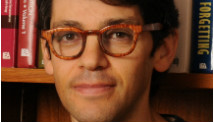TOKYO (Reuters) - Asian shares, commodity currencies and oil rose on Thursday as sentiment improved after U.S. Federal Reserve Chairman Ben Bernanke reaffirmed his commitment to strong stimulus measures, while a smooth debt sale calmed nerves jangled by Italy's political deadlock.
European markets are seen extending gains for a second day, with financial spreadbetters predicting London's FTSE 100 <.ftse>, Paris's CAC-40 <.fchi> and Frankfurt's DAX <.gdaxi> would open as much as 0.6 percent higher. <.l><.eu/>
A 0.1 percent rise in U.S. stock futures also hinted at a firm Wall Street start. <.n/>
The MSCI's broadest index of Asia-Pacific shares outside Japan <.miapj0000pus> was up 0.3 percent and was set for a monthly gain of 0.7 percent.
Australian shares <.axjo> soared 1.5 percent, Hong Kong shares <.hsi> added 1.2 percent and Indonesian stocks <.jkse> continued their bull run to hit another historic peak after closing on Wednesday at a record.
Japan's Nikkei stock average <.n225> climbed 1.3 percent as the yen softened. <.t/>
The yen was defensive, with Japanese Prime Minister Shinzo Abe nominating Asian Development Bank President Haruhiko Kuroda as Bank of Japan governor, and academic Kikuo Iwata as one of the two deputy governors. Both are seen by markets to support Abe's call for unconventional reflationary stimulus measures, and that view has underpinned yen selling.
Italy's inconclusive election last weekend raised fears that the euro zone's third-largest economy could abandon its fiscal reforms, but analysts and traders say they expect Rome to pursue a basic austerity path to pare down its huge debt, even if is at a more moderate pace, and that the European Central Bank will stand ready to provide funding support if needed.
The rally in equities and other risk assets showed the dimming appeal of safe-haven investments. A day after slumping nearly 1 percent on Wednesday, spot gold traded little changed around $1,597 an ounce and was headed for its longest run of monthly declines in more than 16 years.
"Gold's sentiment remains fickle, as it lacks a significant catalyst to propel the rally into the 13th year and people are more sensitive to even slightly bearish signs," said Chen Min, an analyst at Jinrui Futures in the southern Chinese city of Shenzhen.
Bernanke, speaking before Congress for a second day, downplayed signs of internal divisions, saying the policy of quantitative easing has the support of a "significant majority" of top central bank policymakers.
Uncertainty over an imminent U.S. fiscal tightening could dampen the positive mood, however, as President Barack Obama and Republican congressional leaders have not reached a deal to avoid the $85-billion in automatic "sequestration" spending cuts, due to start on Friday.
Regional data released on Thursday was mixed.
Australian business investment showed a surprise fall last quarter as firms outside the red-hot mining sector cut back, while estimates of future spending confirmed the long boom in resource investment was likely to end this year.
Japan's industrial output, on the other hand, rose for a second straight month in January, offering some evidence that the export-reliant economy may be emerging from a mild recession, taking strength from a pick-up in global demand and the weaker yen.
ITALY SURVIVES
Italy's borrowing costs rose to a four-month high on Wednesday at the first bond auction since this week's inconclusive election but solid demand from domestic investors eased fears that the political deadlock could destabilize Europe's second-biggest sovereign debt market.
"Indeed there is room for optimism -- if the Italian risks remain contained -- as signals of stabilization continue to emerge," Barclays Capital said in a note.
The euro inched up 0.1 percent to $1.3143, well above a seven-week low of $1.3018 on Tuesday.
Others were more cautious.
"While confidence is high, there are still risks present. Negative political news from Italy may provide headwinds, while the looming 1 March deadline for the U.S. sequester could trigger $85 billion of across-the-board budget cuts," said Miguel Audencial, a sales trader with Sydney-based CMC Markets.
The yen steadied around 92.24 against the dollar. The yen hit its lowest since May 2010 of 94.77 on Monday before the outcome of the Italian vote rattled financial markets and sent the yen soaring to 90.85 yen.
The yen eased 0.1 percent against the euro to 121.19 after jumping to 118.74 on Monday.
U.S. crude rose 0.3 percent to $93.02 a barrel while Brent rose 0.2 percent to $112.07.
(Additional reporting by Luke Pachymuthu and Rujun Shen in Singapore; Editing by Eric Meijer)

